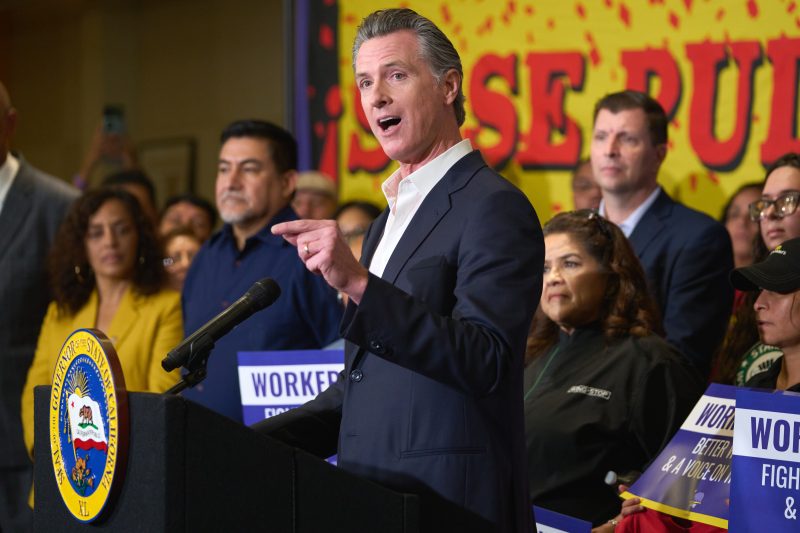California Governor Gavin Newsom is facing competing pressures as he considers who should be appointed to succeed Senator Dianne Feinstein. There is a growing chorus of voices calling for the open Senate seat to go to a more progressive candidate while others argue in favor of someone more closely aligned with the senator’s moderate political philosophy.
The decision that he makes will shape the political landscape in California for years to come as the state’s largest and most influential congressional delegation plays an increasingly important role in national politics. It will also be seen as a reflection on the governor’s own political judgment, revealing whether he is willing to prioritize the interests of the more progressive wing of the Democratic Party or prefer to stay closer to the center.
Feinstein’s departure from the Senate has led to a wide range of reactions from political leaders and pundits. Some are praising her long tenure of public service and others are challenging the decision to appoint a moderate leader in her place. For instance, Rep. Ro Khanna has been vocal in his support of a more progressive leader, claiming that California needs modern representation in Washington. On the other hand, some are taking a more tempered approach and insisting that the key factor should be the candidate’s ability to serve effectively, regardless of ideology.
Ultimately, who Newsom appoints will come down to his decision alone and will depend on numerous factors beyond raw politics. He may consider the qualifications of particular candidates, their records of public service, and whether or not they can help him to achieve his own goals. Regardless of what he decides, the governor’s choice will reflect his own priorities and values and will shape the direction of California’s politics for decades to come.

